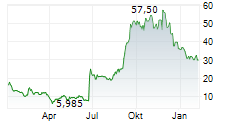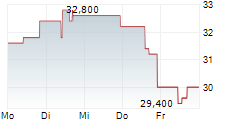
- NKTR-255 administered post completion of concurrent chemoradiation and in combination with durvalumab demonstrated statistically significant lymphocyte recovery compared to historical controls at week 8 -
- Pharmacodynamic data show NKTR-255 increased NK cell proliferation and markers of NK cell activation -
SAN FRANCISCO, Nov. 7, 2024 /PRNewswire/ -- Nektar Therapeutics (Nasdaq: NKTR) and collaborators at The University of Texas MD Anderson Cancer Center today presented late-breaking results from a Phase 2 study evaluating NKTR-255 for the treatment of radiation induced lymphopenia after concurrent chemoradiation in locally advanced non-small cell lung cancer (NSCLC) patients at the Society for Immunotherapy of Cancer (SITC) 39th Annual Meeting.
NKTR-255 is a novel polymer-conjugated IL-15 agonist, designed to activate, proliferate and expand natural killer (NK) and CD8+ T-cells, as well as to promote the survival and expansion of memory CD8+ T cells. NKTR-255 is currently being evaluated in combination with cellular therapies and immune checkpoint inhibitors. Previous pre-clinical and clinical studies have shown that NKTR-255 can proliferate a range of immune cells and augment lymphocyte trafficking.1,2,3
The results from the preplanned interim analysis from the REStoring lymphoCytes Using NKTR-255 after chemoradiothErapy in solid tumors (RESCUE) trial suggest that NKTR-255 effectively reversed radiation induced lymphopenia in patients with locally advanced NSCLC receiving consolidation therapy with durvalumab. Interim pharmacodynamic data demonstrated statistically significant superiority of the eight-week absolute lymphocyte count (ALC) with NKTR-255 post chemoradiation and in combination with durvalumab versus non-contemporaneous control groups who received either chemoradiation alone or chemoradiation in combination with durvalumab.
"Radiation induced lymphopenia is common after chemoradiation therapy and is associated with worse overall survival in multiple solid tumors including lung cancer." said Steven H. Lin, MD, PhD, Professor of Radiation Oncology at MD Anderson. "These interim results showing that NKTR-255 can rapidly restore absolute lymphocyte counts post chemoradiation suggest that NKTR-255 has the potential to confer prognostic benefits and enhanced survival in patients with locally advanced NSCLC."
"These results, combined with the body of evidence previously reported with NKTR-255 in combination with cell therapy, highlight NKTR-255's potential to enhance clinical benefit in both hematologic malignancies and solid tumors" said Mary Tagliaferri, MD, Senior Vice President and Chief Medical Officer at Nektar.
The Phase 2 single-arm study conducted by MD Anderson is evaluating NKTR-255 (3µg/kg IV) following concurrent chemoradiation and in combination with consolidation therapy with durvalumab. NKTR-255 3µg/kg is administered intravenously every 4 weeks in combination with durvalumab (1500mg IV) for up to 1 year (NCT05632809). The primary objectives of the study are safety and ALC normalization at Week 8 after initiation of NKTR-255 and durvalumab post chemoradiation. Secondary endpoints include progression-free survival and overall survival. The trial is currently ongoing at MD Anderson.
Key details and takeaways from the presentation are as follows:
Late-breaking Abstract (LBA) 1489: " REStoring lymphoCytes Using NKTR-255 after chemoradiothErapy in solid tumors (RESCUE): Preplanned Interim Safety and Efficacy Analysis", Lin, S., et al.
- The combination of NKTR-255 and durvalumab post chemoradiation was shown to be safe and tolerable with an AE profile consistent with previously reported clinical trials.
- Interim pharmacodynamic data demonstrated statistically significant superiority of the eight-week absolute lymphocyte count with NKTR-255 post chemoradiation and in combination with durvalumab versus non-contemporaneous control groups who received either chemoradiation alone or chemoradiation in combination with durvalumab. Additional pharmacodynamic findings following NKTR-255 administration show increased markers of NK cell proliferation and activation.
About NKTR-255
NKTR-255 is a biologic that targets the IL-15 pathway in order to activate the body's innate and adaptive immunity. Through optimal engagement of the IL-15 receptor complex, NKTR-255 is designed to enhance functional NK cell populations and formation of long-term immunological memory to improve the anti-tumor immune response.
In addition to studies in combination with CAR T cell therapies, NKTR-255 is being studied in a Phase 1 clinical trial sponsored by AbelZeta which is evaluating C-TIL051, a tumor-infiltrating lymphocyte therapy, in anti-PD1 resistant metastatic non-small cell lung cancer (NCT05676749). The JAVELIN Bladder Medley study (NCT05327530), sponsored by Merck KGaA, is also ongoing to evaluate NKTR-255 in combination with avelumab as a maintenance treatment in patients with locally advanced or metastatic urothelial carcinoma (NCT05327530).
About Nektar Therapeutics
Nektar Therapeutics is a clinical-stage biotechnology company focused on developing treatments that address the underlying immunological dysfunction in autoimmune and chronic inflammatory diseases. Nektar's lead product candidate, rezpegaldesleukin (REZPEG, or NKTR-358), is a novel, first-in-class regulatory T cell stimulator being evaluated in two Phase 2b clinical trials, one in atopic dermatitis and one in alopecia areata. Our pipeline also includes a preclinical candidate NKTR-0165, which is a bivalent tumor necrosis factor receptor type II agonist antibody. Nektar, together with various partners, is also evaluating NKTR-255, an investigational IL-15 receptor agonist designed to boost the immune system's natural ability to fight cancer, in several ongoing clinical trials. Nektar is headquartered in San Francisco, California. For further information, visit www.nektar.com and follow us on LinkedIn.
Cautionary Note Regarding Forward-Looking Statements
This press release contains forward-looking statements which can be identified by words such as: "will," "expect," "develop," "potential," "advance," "anticipate," "continue," and similar references to future periods. Examples of forward-looking statements include, among others, statements regarding the therapeutic potential of, and future development plans for NKTR-255. Forward-looking statements are neither historical facts nor assurances of future performance. Instead, they are based only on our current beliefs, expectations and assumptions regarding the future of our business, future plans and strategies, anticipated events and trends, the economy and other future conditions. Because forward-looking statements relate to the future, they are subject to inherent uncertainties, risks and changes in circumstances that are difficult to predict and many of which are outside of our control. Our actual results may differ materially from those indicated in the forward-looking statements. Therefore, you should not rely on any of these forward-looking statements. Important factors that could cause our actual results to differ materially from those indicated in the forward-looking statements include, among others: (i) our statements regarding the therapeutic potential of NKTR-255 are based on preclinical and clinical findings and observations and are subject to change as research and development continue; (ii) NKTR-255 is an investigational agent and continued research and development for this drug candidate is subject to substantial risks, including negative safety and efficacy findings in future clinical studies (notwithstanding positive findings in earlier preclinical and clinical studies); (iii) NKTR-255 is in clinical development, and the risk of failure is high and can unexpectedly occur at any stage prior to regulatory approval; (iv) the timing of the commencement or end of clinical trials and the availability of clinical data may be delayed or unsuccessful due to challenges caused by regulatory delays, slower than anticipated patient enrollment, manufacturing challenges, changing standards of care, evolving regulatory requirements, clinical trial design, clinical outcomes, competitive factors, or delay or failure in ultimately obtaining regulatory approval in one or more important markets; (v) patents may not issue from our patent applications for our drug candidates, patents that have issued may not be enforceable, or additional intellectual property licenses from third parties may be required; and (vi) certain other important risks and uncertainties set forth in our Quarterly Report on Form 10-Q filed with the Securities and Exchange Commission on August 9, 2024. Any forward-looking statement made by us in this press release is based only on information currently available to us and speaks only as of the date on which it is made. We undertake no obligation to update any forward-looking statement, whether written or oral, that may be made from time to time, whether as a result of new information, future developments or otherwise.
Contact:
For Investors:
Vivian Wu of Nektar Therapeutics
628-895-0661
For Media:
Madelin Hawtin
LifeSci Communications
603-714-2638
[email protected]
- NKTR-255, a novel polymer-conjugated rhIL-15 with potent antitumor efficacyJ Immunother Cancer. 2021 May;9(5):e002024.
- A novel polymer-conjugated human IL-15 improves efficacy of CD19-targeted CAR T-cell immunotherapy Hirayama A, et al. Blood Advances 2022.
- A phase 1 clinical trial of NKTR-255 with CD19-22 CAR T-cell therapy for refractory B-cell acute lymphoblastic leukemia Srinagesh, Blood (2024). 144 (16): 1689-1698.
SOURCE Nektar Therapeutics




